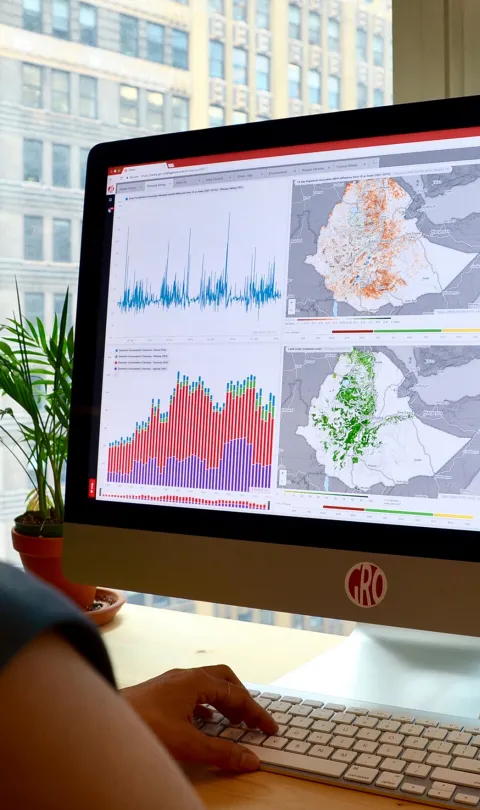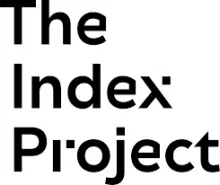Data and artificial intelligence (AI) can reveal hidden insights that, if leveraged the right way, can help society tackle challenges from disease to crime and beyond. INDEX: Design to Improve Life works to scale the growth and impact of sustainable design, illustrating how design can help solve the world's greatest challenges. Since 2005, we've sourced and championed the best examples of design to improve life via the INDEX: Award - the world's largest design prize. During the 2017 award cycle, there were more than 1,400 nominations from 85 countries, ranging from low-cost diagnostic tools to futuristic energy concepts.
The following 10 initiatives, curated by the INDEX team, are noteworthy examples of how data and AI can solve global challenges and improve quality of life for people everywhere.
Before data science and advanced technology, predicting the timing, location, and trajectory of diseases and epidemics seemed like science fiction. But AIME, founded at Singularity University, is doing it. The lifesaving service uses big data and AI to predict outbreaks. It then alerts government agencies, communities, and healthcare service providers. They’ve tested their platform in Malaysia and Brazil, where they predicted dengue outbreaks with approximately 85 percent accuracy.
DoNotPay, the world's first ‘robot’ to provide quality legal advice, is seeking to make legal guidance accessible to more people. The user simply logs in and explains the situation to the chatbot. It then provides legal advice and can even file an appeal. So far, it has saved people over US $7 million in successfully appealed parking tickets. There are plans to expand the service to assist refugees with asylum claims, and to assist the homeless with legal claims for government housing.
Online platform Kaggle is a powerful enabler for solving problems with predictive modelling and analytics. The service uses a crowdsourcing approach to solve data challenges shared by companies and researchers. Users share their data and problem on the platform. Then statisticians and data miners get to work, building and sharing models for predicting, describing, and analyzing the data. The Kaggle platform has produced solutions to data-related queries ranging from media classification, environmental pollution, to space exploration and much more.
Big data is one of the most powerful tools we have, yet its application within agriculture is still largely limited. Gro combines global food and agriculture data, and structures it into a common language. It offers a range of machine learning models to forecast supply, demand, and environmental catastrophes. So far, the service has improved risk assessments for industry lenders and is helping countries prepare for the impacts of climate change.
Citizen-led research has led to some serious leaps and bounds forward in the race to cure disease. Now, online platform CAVD DataSpace wants to tackle HIV. The service allows vaccine experts around the world to seamlessly collaborate on research. It also makes all the results instantly, publicly available - information that would otherwise be exclusively published in journals. By making credible knowledge available in one place, the initiative hopes to strengthen our understanding of HIV and spur progress towards finding a cure.
The illicit wildlife and plant trade is driving hundreds of species to extinction. But with limited resources, it’s often difficult to prevent poaching or find alternative solutions. PAWS is an AI system that is using data from past poaching activities to develop smarter routes for patrols. The routes are calculated based on locations where poaching is likely to occur, but are also randomized to keep poachers from learning patrol patterns.
Blockchain is revolutionizing supply chain transparency by enabling open and unalterable purchase ledgers. Using blockchain technology, Provenance.org is making it easy for consumers to choose more ethical and sustainable products and services by enabling users to track the origins of anything from coffee beans to a roll of fabric. The company is working with more than 200 brands and has the potential to impact every person along the supply chain, improving lives around the world.
Getting around cities is a daunting and complicated task - particularly if you can’t speak or read the language. CityMapper is a reinvented transport app built for the needs of daily commuters. It offers easy-to-understand directions using real-time routing that updates every minute. Their open data model allows for agencies, CityMapper employees, and other super-users to add and fix data. The service operates on the brilliant premise that “if you make information accessible, someone will make good use of it, and people will benefit.”
IBM Watson is one of the world’s most established cognitive computing systems. To date, the technology has already won Jeopardy, written a cookbook, and dabbled in medical research. The supercomputer can read, analyze, and learn almost exactly like the human brain. It can make informed, context-specific decisions, and it even gets smarter with each human interaction. Watson is now working in 17 different industries and is poised to tackle cyber crime, disease diagnostics, education, and much more.
Big data and AI have a well-established presence within law enforcement, helping perform analysis to determine vulnerable areas, scour social media for incriminating posts, and more. This initiative, however, aims to leverage big data and AI to stem police brutality. The AI system, tested by the Charlotte-Mecklenburg Police Department in North Carolina, collects and assesses a range of data on each officer. It then looks for early warning signs of stress or aggression, alerting the department so that a timely intervention can be made.

